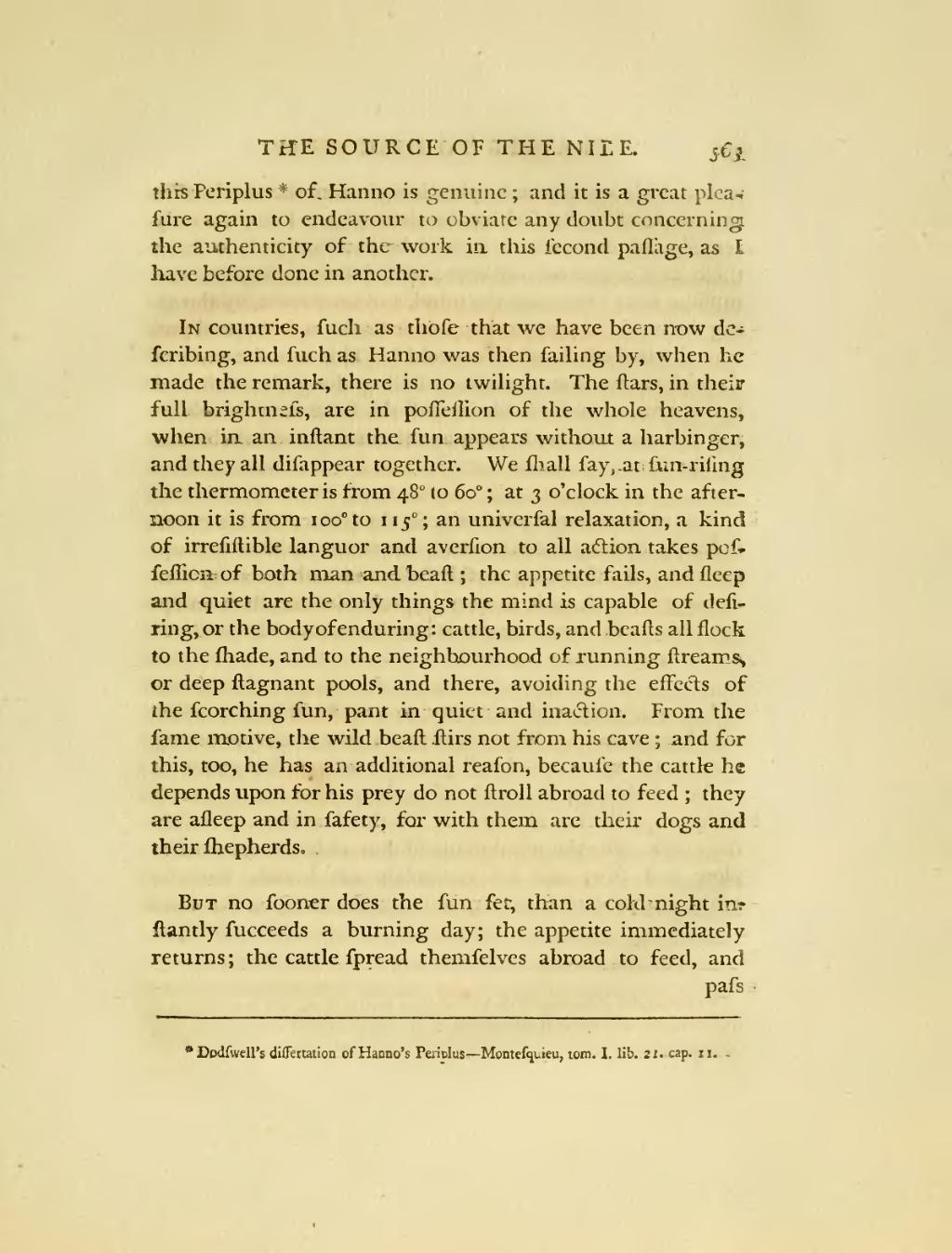this Periplus[1] of Hanno is genuine; and it is a great pleasure again to endeavour to obviate any doubt concerning the authenticity of the work in this second passage, as I have before done in another.
In countries, such as those that we have been now describing, and such as Hanno was then failing by, when he made the remark, there is no twilight. The stars, in their full brightness, are in possession of the whole heavens, when in an instant the sun appears without a harbinger, and they all disappear together. We shall say, at sun-rising the thermometer is from 48° to 60°; at 3 o'clock in the afternoon it is from 100° to 115°; an universal relaxation, a kind of irresistible languor and aversion to all action takes possession of both man and beast; the appetite fails, and sleep and quiet are the only things the mind is capable of desiring, or the body of enduring: cattle, birds, and beasts all flock to the shade, and to the neighbourhood of running stream, or deep stagnant pools, and there, avoiding the effects of the scorching sun, pant in quiet and inaction. From the same motive, the wild beast stirs not from his cave; and for this, too, he has an additional reason, because the cattle he depends upon for his prey do not stroll abroad to feed; they are asleep and in safety, for with them are their dogs and their shepherds.
But no sooner does the sun set, than a cold night instantly succeeds a burning day; the appetite immediately returns; the cattle spread themselves abroad to feed, and
- ↑ Dodswell's dissertation of Hanno's Periplus—Montesquieu, tom. I. lib. 21. cap. ii.
